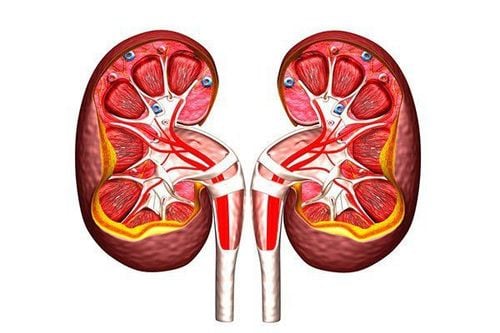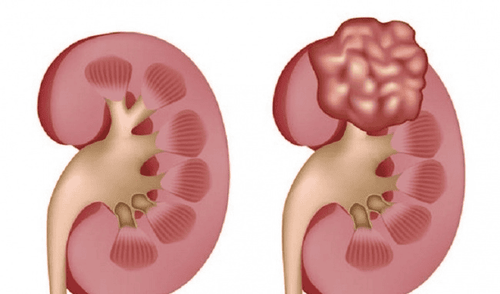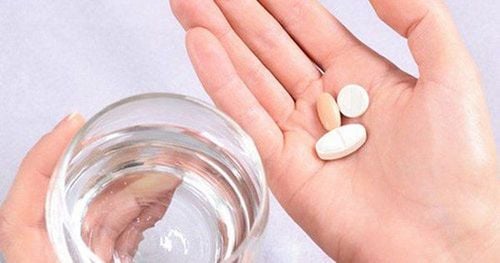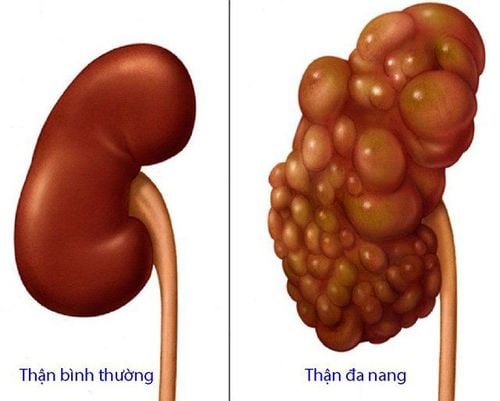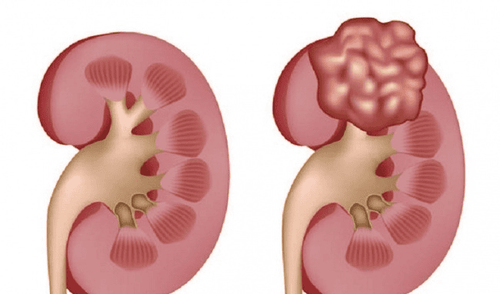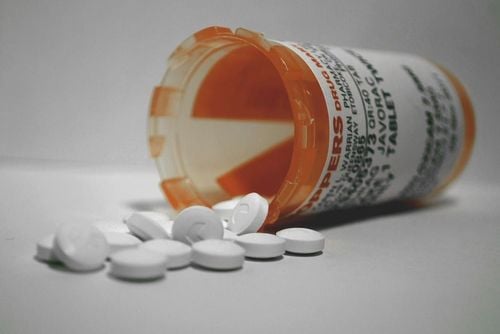This is an automatically translated article.
It is difficult to define an exact diet for all people living with idiopathic polycystic kidney disease. However, you still have directions to find out what works for you. Here are tips for building a healthy diet for people with idiopathic polycystic kidney syndrome
1. Why people with idiopathic polycystic kidney syndrome need to have a healthy diet.
There is no one specific standard diet for people with idiopathic polycystic kidney disease (ADPKD). There is also not enough scientific evidence to know if changing what a patient is eating will slow cyst growth. However, creating a healthy diet can help patients better manage health problems and avoid the severe progression of certain diseases, such as diabetes and high blood pressure. In addition, making dietary choices like cutting back on salt and protein can also help protect the kidneys. For advice and support, patients can talk to their doctor to get a diet that is right for them, or they can also talk to nutritionists who have experience in care. patients with kidney problems to have a suitable diet for themselves.
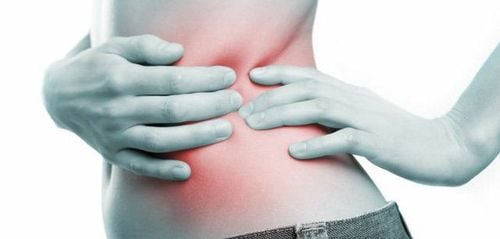
Bệnh thận đa nang tự phát có thể được điều trị thông qua chế độ ăn uống
2. How do I get started?
Try these dietary choices that can help you stay healthy in the following ways:
2.1 Cut down on salt
Eating less salt helps you control blood pressure. High blood pressure is quite common for people with polycystic kidney disease and worse, it can damage your kidneys. And here are tips on how you can reduce the amount of salt you eat:
Aim to eat less than 2,300 milligrams of sodium per day. Sodium is a major ingredient in salt. Buy fresh food. Prepare your own ingredients and cook meals. Do not add too much salt when you are preparing meals. Use herbs and spices to flavor dishes. Limit your intake of processed foods, packaged foods, and canned foods. Avoid foods that are high in salt such as bacon, bread, breakfast cereals, ham, hot dogs, and ready-to-eat foods. Check the nutrition facts on the labels of foods you buy. Avoid foods with 20% or more sodium content. Wash vegetables, beans, fish, and canned meat before you eat or cook them before eating. Limit your intake of pre-cooked food at restaurants and takeout. As these foods tend to be used a lot of salt during cooking.
2.2 Make smart protein choices
When you eat protein, the body creates waste and the kidneys have to work hard to get rid of the waste. Cutting down on protein makes the work of the kidneys lighter. But you also need protein for your body for energy, for growth, and for recovery. Everyone has different protein needs. Talk to your doctor for advice on how much protein and what type of protein you should be eating. Plant protein may be better for your kidneys than animal protein. These may include: Beans, chicken, dairy products, eggs, fish, nuts.
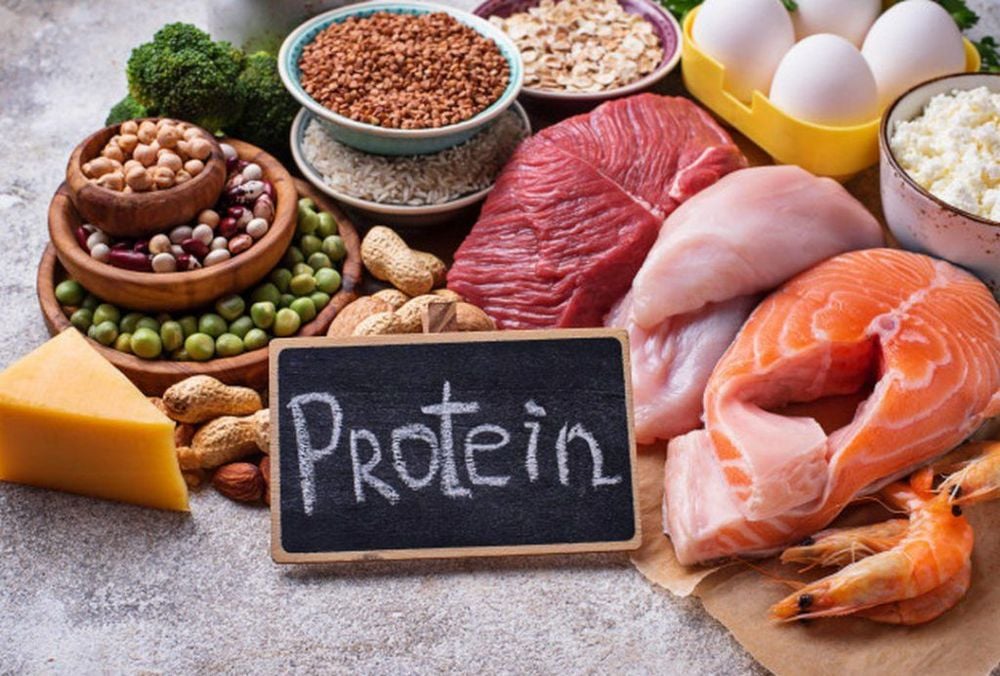
Bạn nên tham khảo ý kiến của bác sĩ về việc ăn thực phẩm chứa protein
2.3 Portion control
Practice managing your food intake following these guidelines:
Cooked chicken, fish or meat: 2-3 ounces, or a piece the size of a card Milk: Half a cup of milk or yogurt, or a slice of cheese Beans: Half a cup Bread: A slice of Rice or pasta: Half a cup Nuts: A quarter cup
2.4 Choose foods that are good for the heart
Blood vessels, heart and kidneys work better when it doesn't accumulate fat. You can lower your fat intake by choosing heart-healthy foods and limiting trans fats and saturated fats. Here are some suggestions for heart-healthy foods:
Beans Eggs, egg whites Fruits Lean meat Low-fat or fat-free milk like milk, yogurt and cheese Seafood Skinless poultry like chicken and chicken Western Vegetables
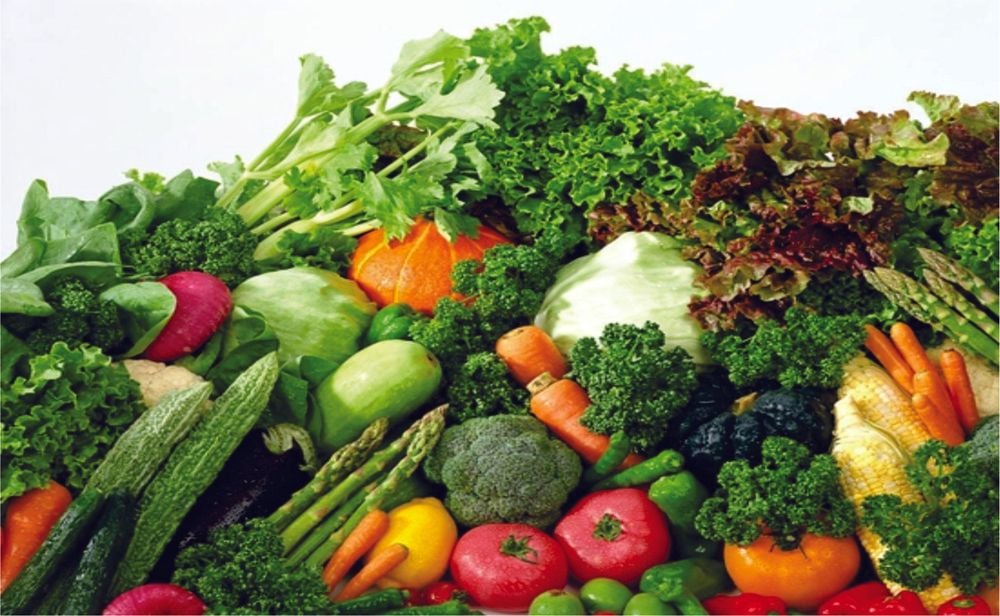
Rau củ, trái cây là những thực phẩm giúp cải thiện chức năng thận và tim
2.5 Eat more fruits and vegetables
Make it a goal to eat five servings of fruit or vegetables a day. Try fruits like apples, apricots, blueberries, cherries, grapes, lemons, citrus, peaches, pears, pineapples, plums, raspberries, strawberries, and watermelons. Switch to vegetables like arugula, bean sprouts, broccoli, cabbage, carrots, cauliflower, corn, cucumber, eggplant, garlic, chickpeas, peas, peppers, raw spinach, summer squash and zucchini.
Follow heart-healthy cooking tips like: Grill, or sauté your food and don't deep fry. Use olive oil instead of butter. Trim fat from meat and remove skin from poultry.
3. How should I control my drink?
3.1 Water
Doctors are also unsure how drinking water will affect kidney cysts. Some people think that getting plenty of water is good for ADPKD, but there are no studies to prove this to be true. Experts suggest a simple rule of thumb is to drink about 2.5 to 3 liters of water a day if you can and may need to add more when you sweat a lot or have diarrhea.
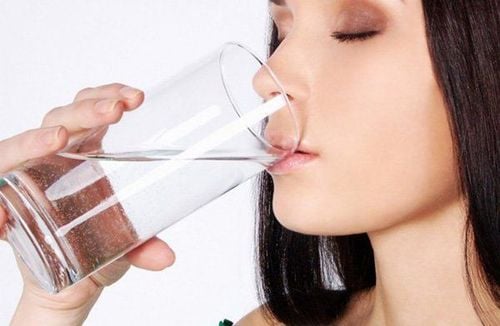
Người bệnh nên cung cấp đủ nước cho cơ thể
3.2 Caffeine
You may have heard very little caffeine is good for ADPKD, but it's not clear if it affects cyst growth. So drink up to two cups of coffee or four cups of tea a day.
3.3 Wine
Drinking a moderate amount of alcohol seems fine. Moderate means trying to keep drinking below two drinks a day for men or one drink a day for women.
4. Special advice for kidney function.
If your kidney function is going down, your doctor may recommend foods low in phosphorus and potassium to help protect your bones and blood vessels. They will tell you what to do based on your test results and what medications you're taking. A dietitian can also give you some tips on how you can create a meal that is low in phosphorus and potassium.

Hạn chế thực phẩm chứa Kali sẽ có lợi cho bệnh nhân mắc bệnh thận đa nang tự phát
5. Tips for success
You may have to change the foods you normally eat for a long time because your kidney function is getting worse or if you have to continue dialysis. If you're having trouble managing portions, seek advice from your doctor or nutritionist, as your body still needs enough calories for energy and health no matter what. They can offer advice to help you find ways to add calories to your diet.
Periodic health check-ups help to detect diseases early, so that there are treatment plans for optimal results. Currently, Vinmec International General Hospital has general health checkup packages suitable for each age, gender and individual needs of customers with a reasonable price policy.
The patient's examination results will be returned to the home. After receiving the results of the general health examination, if you detect diseases that require intensive examination and treatment, you can use services from other specialties at the Hospital with quality treatment and services. outstanding customer service.
Please dial HOTLINE for more information or register for an appointment HERE. Download MyVinmec app to make appointments faster and to manage your bookings easily.
Reference source: webmd.com




